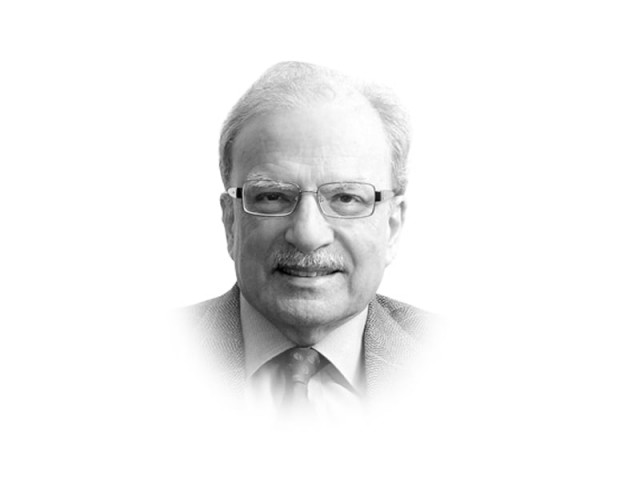Minding middle class aspirations
Middle class will remain politically restive as long as they don’t find a home in the economic, political systems

The writer is a former caretaker finance minister and served as vice-president at the World Bank
Seen together, these events indicate the start of the process that should result in fundamental changes in power relationships in the country, in particular the rapidly expanding urban areas. Pakistan is now one of the world’s most rapidly urbanising countries. That said, its politics remain trapped in the countryside. There is tremendous resistance to bringing about the needed change, which is why the country has not been able to hold population censuses. The last census was held in 1998, almost two decades ago.
If an honest population count were to be conducted now, it will find that more than one-half of the population resides in the urban areas. Delimiting constituencies on this basis would shift political power from rural to urban areas. Even with this change, it will take some serious electoral reform and the reform of political institutional structures to admit the large middle class into the political and economic space.
There is considerable debate among many experts in the country about the size of the urban middle class and its economic strength. My admittedly crude estimate is to place it around 50 million with 30 million in the country’s large cities and another 20 million in medium and small towns.
In fact, the middle class should be divided into two economically and socially distinct classes with very different aspirations. Much of the lower middle class is made up of the people who have left the ranks of the poor and moved into the range of the middle class. A significant number of these were able to climb out of poverty because of the remittances received from the Middle East. The amounts remitted have continued to climb. The upper middle class has also increased in size; it has drawn on the changing structure of the economy.
Most of the population in these two classes is not being served well by the existing political system. This is one reason why the campaigns launched by Dr Tahirul Qadri and Imran Khan in August 2014 resonated well with the urban youth. It is my impression that Qadri had greater appeal for the lower middle class and Imran Khan for those located in the upper half of the spectrum. The PTI leader, by calling for electoral reform and for good governance, promised the change this particular group of people wanted. By bringing former governor Chaudhry Sarwar into the party fold, Khan highlighted his demand for better governance.
However, even if the PTI succeeds in enfranchising the upper middle class youth, those in the lower income categories will remain dissatisfied and hence restless. Their disaffection will have consequences that could bring about this profound political change. That can happen has been vividly demonstrated by the electoral triumph of the Aam Adami Party (AAP) in the elections in Delhi, India. The AAP trounced the Bharatiya Janata Party after the latter’s impressive electoral triumph in May 2014. What this turnaround shows is a very restless electorate that is willing to draw blood if its aspirations were not satisfied.
Combining these political and economic trends, it seems to me that Pakistan’s political landscape is ready for another convulsion. This will involve the emergence of relatively new political forces that will be more representative of the interests and aspirations of the middle classes. These population groups will remain politically restive for as long as they don’t find a home for themselves in the economic and political systems. How soon that happens will depend on the malleability of the two systems. One thing is certain: maintenance of the status quo is not acceptable to large segments of the population.
Published in The Express Tribune, February 16th, 2015.
Like Opinion & Editorial on Facebook, follow @ETOpEd on Twitter to receive all updates on all our daily pieces.














COMMENTS
Comments are moderated and generally will be posted if they are on-topic and not abusive.
For more information, please see our Comments FAQ